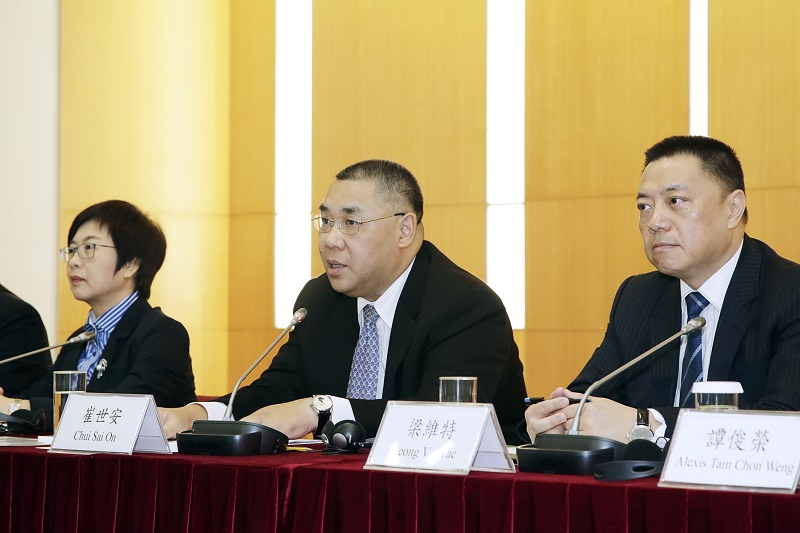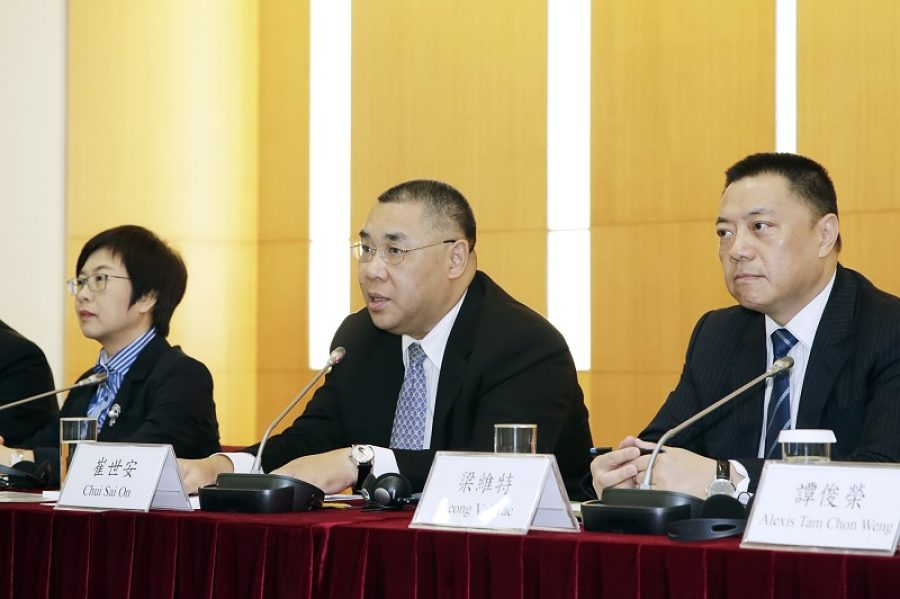Chief Executive Fernando Chui Sai On said Thursday he was “very confident” that the government’s supply of public housing units will be able to meet public demand, when addressing a press conference on the final version of the government’s first ever Five-Year Development Plan.
Chui, his five policy secretaries and other senior officials attended the press conference at Government Headquarters.
Responding to questions from the media, Secretary for Transport and Public Works Raimundo do Rosario said the construction of social housing rental flats would take priority over the construction of subsidised home ownership scheme (HOS) units, adding that the government will not change this policy.
Rosario pointed out that currently there are fewer social housing units than HOS flats.
Both social housing rents and HOS flat prices are much lower than their counterparts in the private property market.
The 5-year plan proposes that the government will build 4,600 public housing units in “the short or medium term” and that 28,000 units will be built in Zone A in “the long term”. Zone A is currently been reclaimed from the sea off the peninsula’s north-eastern coast.
Besides, more than 8,000 public housing units can be built on the plot of the abandoned La Scala luxury housing project near the airport, the plan says.
Chui said that the repossession of idle plots of land and the ongoing reclamation of land from the city’s coastal waters would give the government more land resources, adding that he was therefore “very confident” that the government will be able to build enough public housing units to meet public demand in the future.
Concerning the city’s economic development until 2020, a more diversified economy and a higher degree of integration and co-operation with the mainland are two major policy directions mentioned by the plan.
The plan proposes that non-gaming revenues of the city’s six gaming operators should account for at least nine percent of their total revenues in 2020, up from 6.6 percent in 2014.
Chui said he expected gaming revenues next year to rise. He also said that after a major adjustment in the gaming sector over the past two years, “the gaming sector is now in a stable condition”.
Chui said he also expected the gaming sector to grow every year for the next five years, meaning that gaming revenues would exceed 200 billion patacas each year for the next five years.
Monthly gaming revenues started to grow again – 1.1 percent year-on-year – last month after a drop of 26 consecutive months.
Secretary for Economy and Finance Lionel Leong Vai Tac told the press conference that the city’s low unemployment rate was a positive sign for the local economy, adding that it helped support local consumption.
Macau’s officially estimated jobless rate stood at 1.9 percent in May-July, according to the Statistics and Census Bureau’s (DSEC) latest available employment data.
Leong nevertheless added that the government will remain cautious due to the possible impact by external factors on the local economy.
The government released the draft version of its Five-Year Development Plan in late April, after which it went through a two-month consultation process.
Chui said that 85 percent of the opinions collected during the consultation process were “positive” about the plan.
The government has released the plan in the city’s two official languages, Chinese and Portuguese.(Macaunews/Macaupostdaily)






